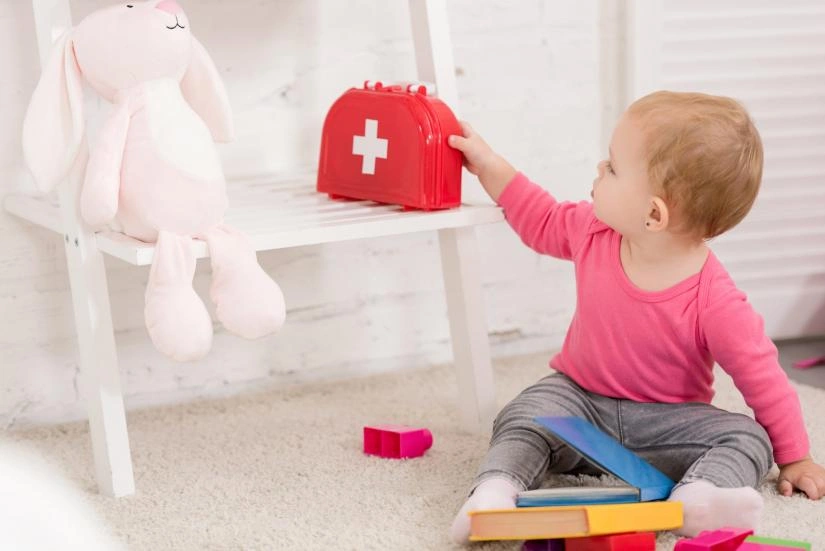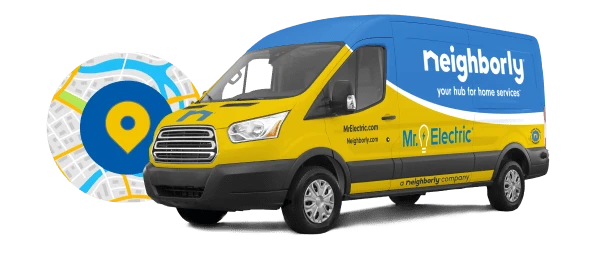
The cliche of "always be prepared" reigns true in most areas of life, but especially in homeownership. You never know when the next electrical storm will hit, when you'll suddenly notice mold and mildew in your basement, or when someone will attempt to break into your home. Even if you feel as though these things could never happen to you, it's better to be safe than sorry.
As a homeowner, it is important to understand the safety risks that come with owning a home. There are some common home safety problems, like mold, electrical risks, and broken locks that can present a hazardous environment for you and your family. Understanding the risks and safety hazards of homeownership can help you properly prepare for and efficiently deal with them.
Fire Extinguisher
This is one of the most important safety essentials that you can have in your home. Not only do you need to have one, but you also need to know how to use it. Most fire extinguishers have instructions on the label that tell you how to use them.
Backup Generator
Installing a backup generator provides a source of electricity to your home so that you can access power during a storm or other types of power outages. You cannot predict when you will lose power but, when you have a generator installed, you don’t have to worry about being without electricity for long.
It is important to provide regular maintenance to your generator so that it stays in good condition. When you need a generator repair or replacement, take care of it as soon as possible. Keep in mind relevant seasons as well. For example, if you live in Florida, you should have replaced or repaired your generator before hurricane season, which is usually from June through the end of November.
To make sure that your generator is set up correctly and for your safety, it’s best to let a professional electrician do the installation.
Surge Protector Power Strip
Surge protectors are designed to help prevent power surges from affecting or destroying electronics in your home. Surges can happen because of faulty wiring, downed power lines, and even electrical storms. Surges can also cause electrical fires in some (rare) circumstances.
In addition to surge protector power strips, you can also get a surge protector for your entire home. Whole house surge protectors work the same as power strips but they are built to withstand multiple surges over a longer period.
Home Security System
Most people find that they sleep better at night with a home security system in place. A home security system is a system that secures all points of entry and alerts you when someone is trying to break in. This is an added layer of protection on top of your door and window locks.
And with technology advancing at a rapid pace, you can find smart home security systems and other home automation systems that ensure the safety of your family with just the click of a button. You can even monitor the activity going on in your house right from your smartphone or tablet.
New Door Locks
This is especially relevant if you are a new homeowner. You should change your locks once you move into your new home. You never know who may have a key (realtors, agents, sellers, etc.) and it’s better to take the extra safety precaution.
If you are renting an apartment, you should ask your landlord if they will install new locks for you. They will have to do it for you, but you can let them know you feel more comfortable with new locks.
Dehumidifier
A dehumidifier helps protect you and your family by maintaining high air quality. When humidity gets too high in your home, the probability of dust mites and other allergens goes up as well. Not to mention, a humid environment is a breeding ground for bacteria, as well as mold and mildew growth. This can be hazardous to you and your family’s health.
Putting a dehumidifier in the areas of your home where moisture is most present (i.e. your bathrooms and your basement) can help prevent mold and other fungi and bacteria from growing.
First Aid Kit
Everybody should have a first aid kit in their home that includes essentials like Band-Aids, aspirin or another pain reliever, ointment, gauze, an emergency blanket, and a thermometer. While some first aid items are universal, you may need to customize your first aid kit based on your own needs. For example, if someone in your family is allergic to something, you should keep their Epipen in your first aid kit.
The Red Cross also recommends adding a guide to understanding and administering emergency first aid.
Disaster Kit
If you live in an area where natural disasters are common, you should have a disaster kit on hand. This is meant for situations like hurricanes, flooding, or wildfires that have displaced you from your home or caused an emergency like widespread, long power outages.
Your disaster kit should have at least these items.
- Cell phone (fully charged, plus a backup battery)
- Multiple gallons of clean water
- Food for at least three days
- Clothes
- Blanket
- Flashlight
- Emergency first aid kit
- Batteries
- A whistle (or another noisemaker)
These items should help you survive without power or electricity and aid you in seeking help and assistance when you need it. All of these home safety essentials will help keep your home and family protected from both external and internal hazards.
